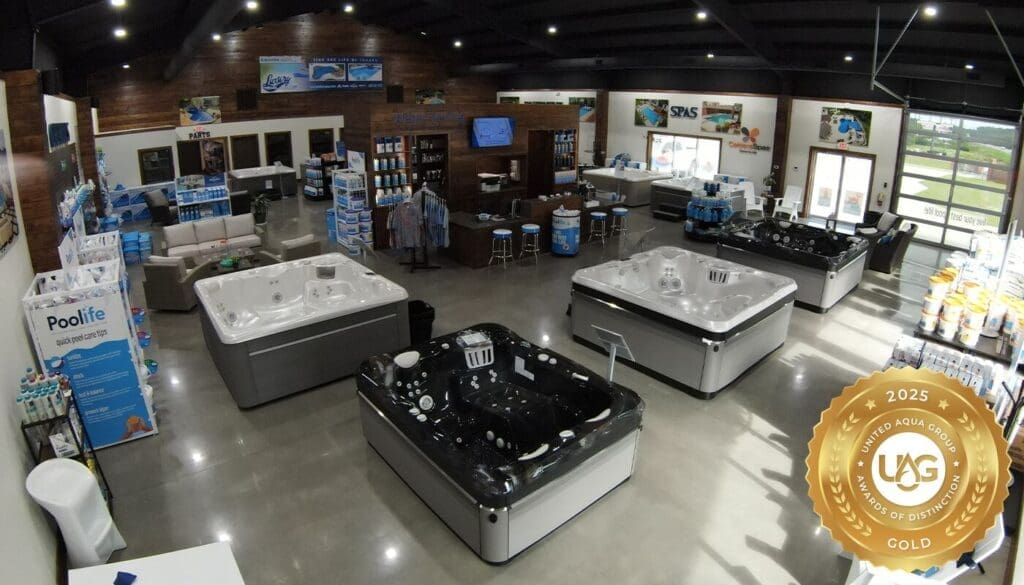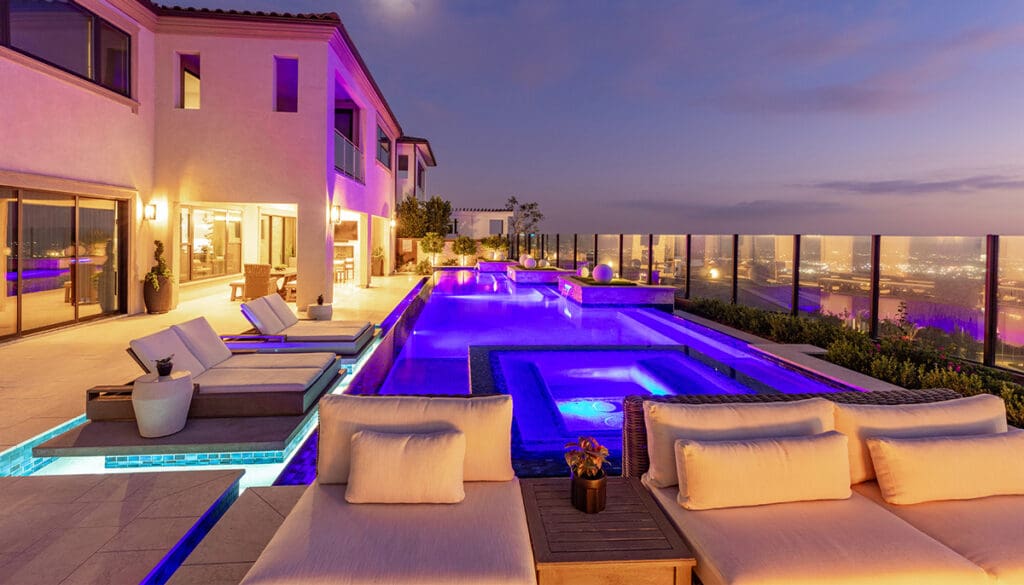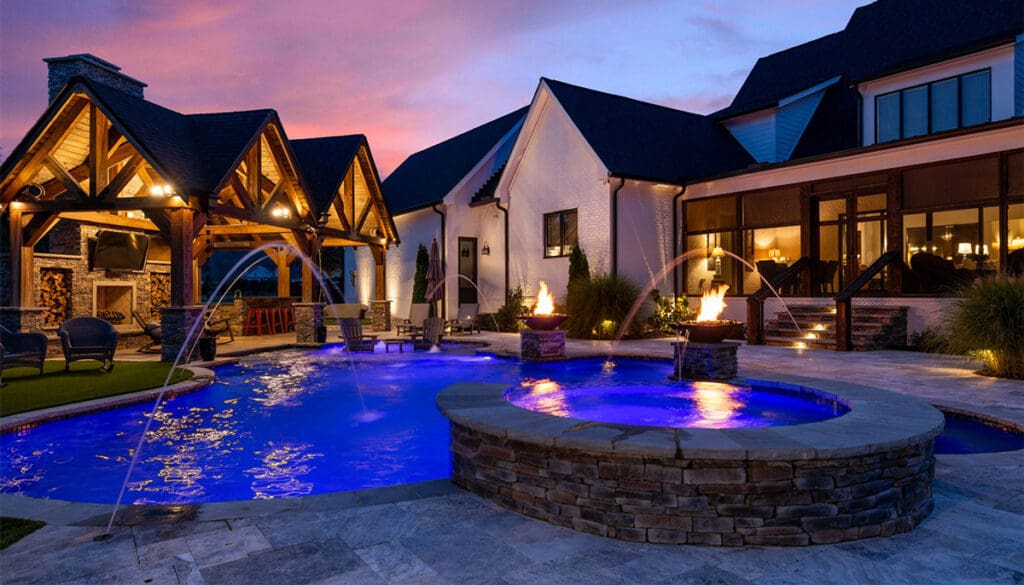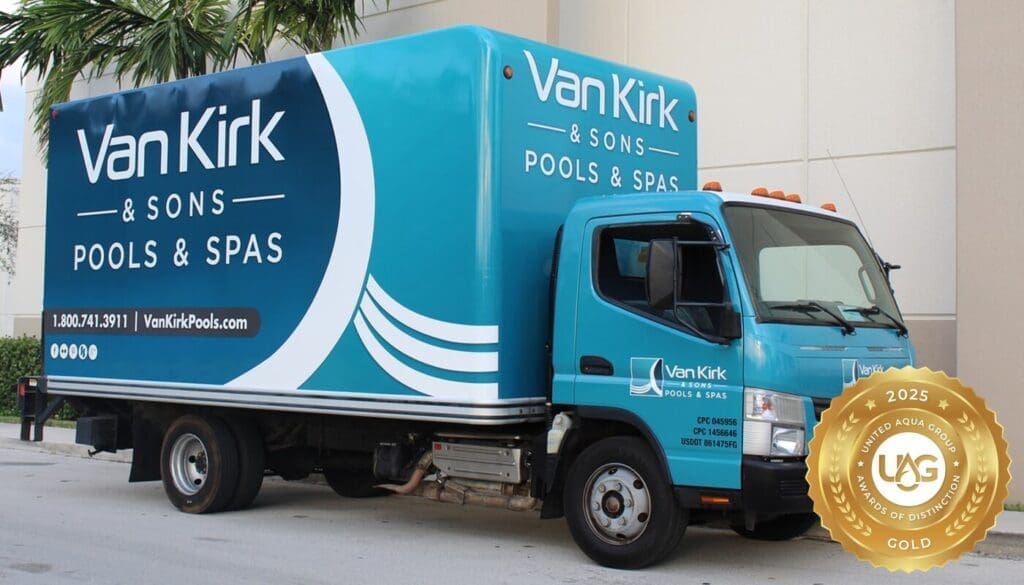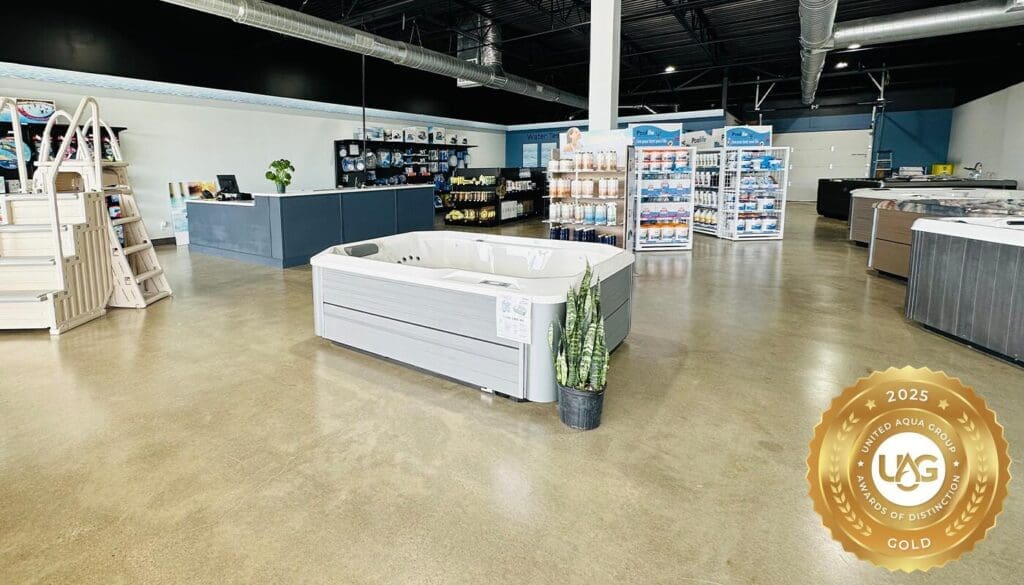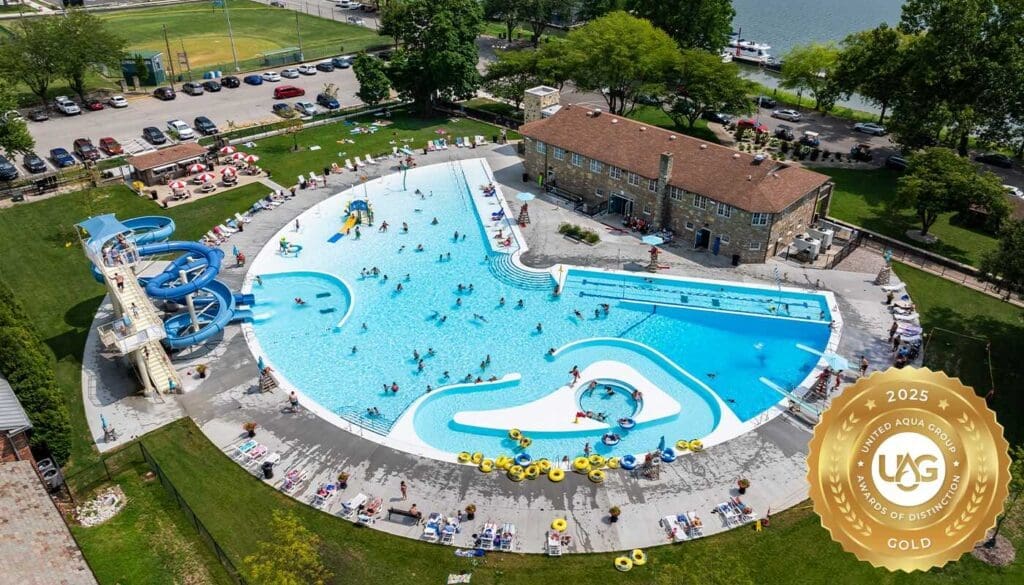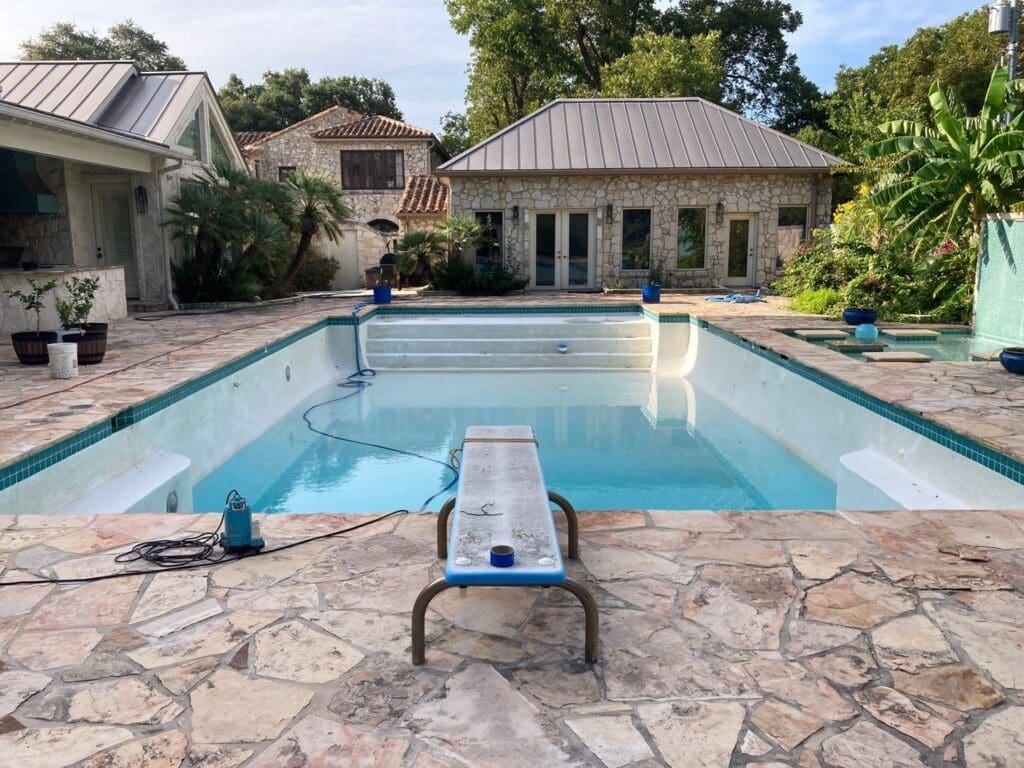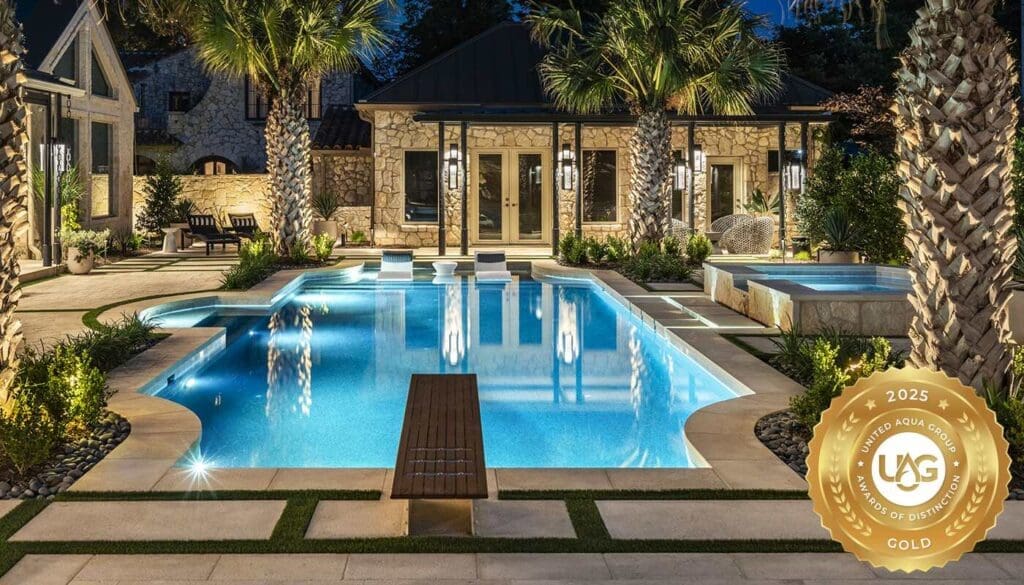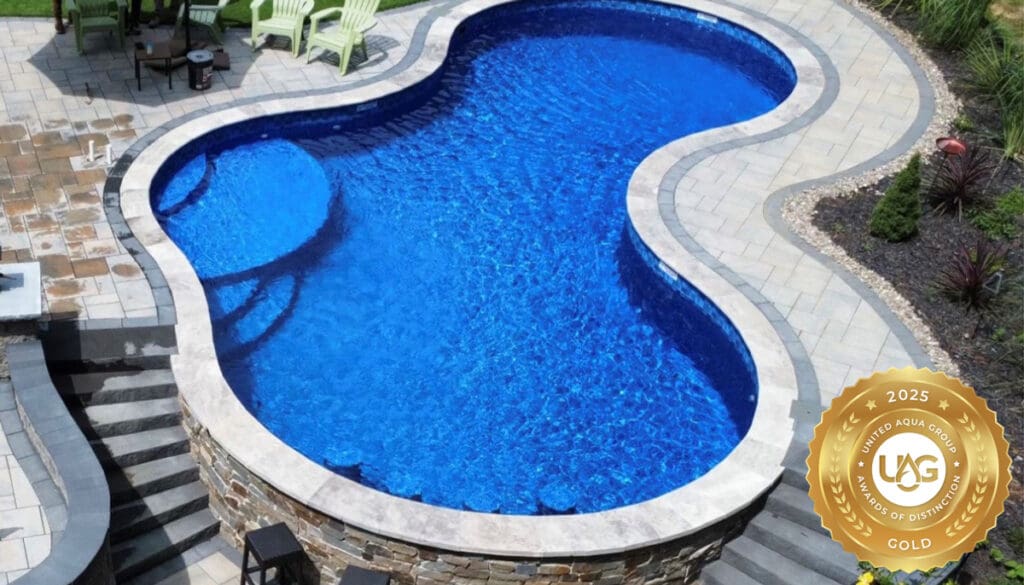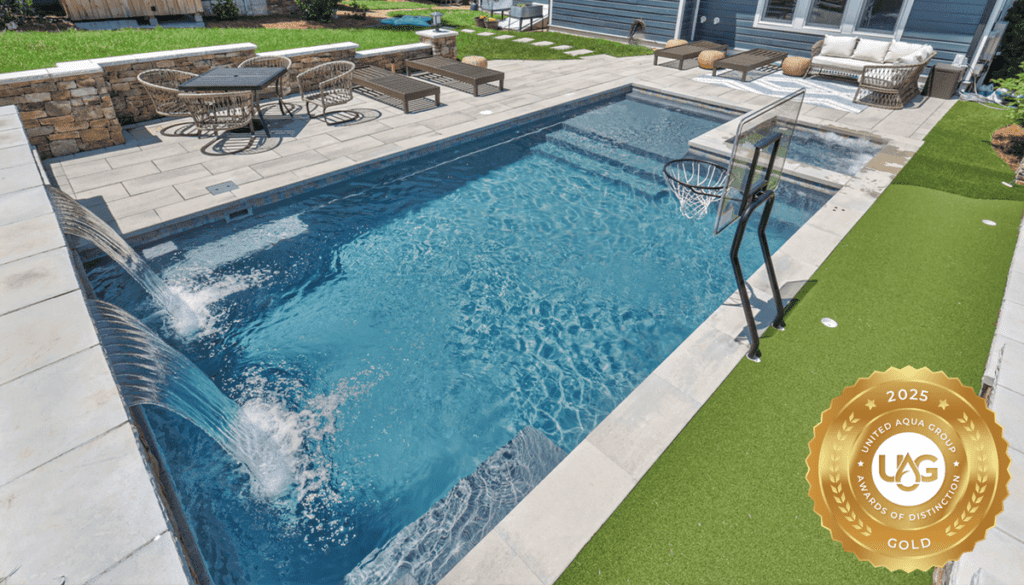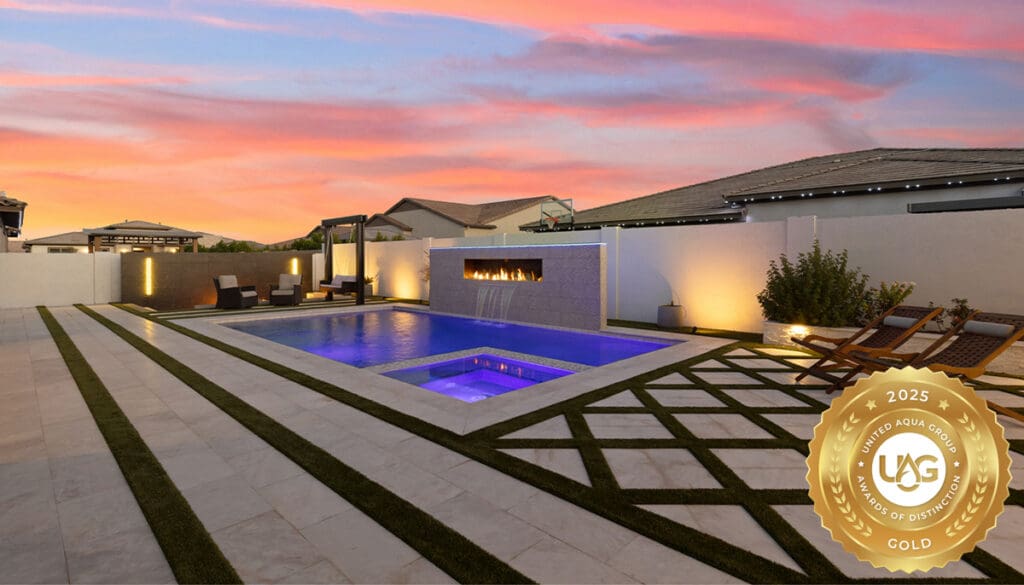Steel pool walls vs. polymer pool walls. It’s a debate that has plagued the pool industry for decades. When it comes to choosing which material to use for your pool build, it’s important to consider the key pros and cons of each. Doing so will help you choose the material that’s better suited for the project at hand.
As the pool industry’s premier buying group, United Aqua Group connects its members with the market’s leading product vendors—like Hydra Pools. This reputable brand features a complete line of both steel and polymer pool walls to meet all your pool material needs. If you want to learn more about our vendor partnerships, feel free to reach out.
Steel Pool Walls
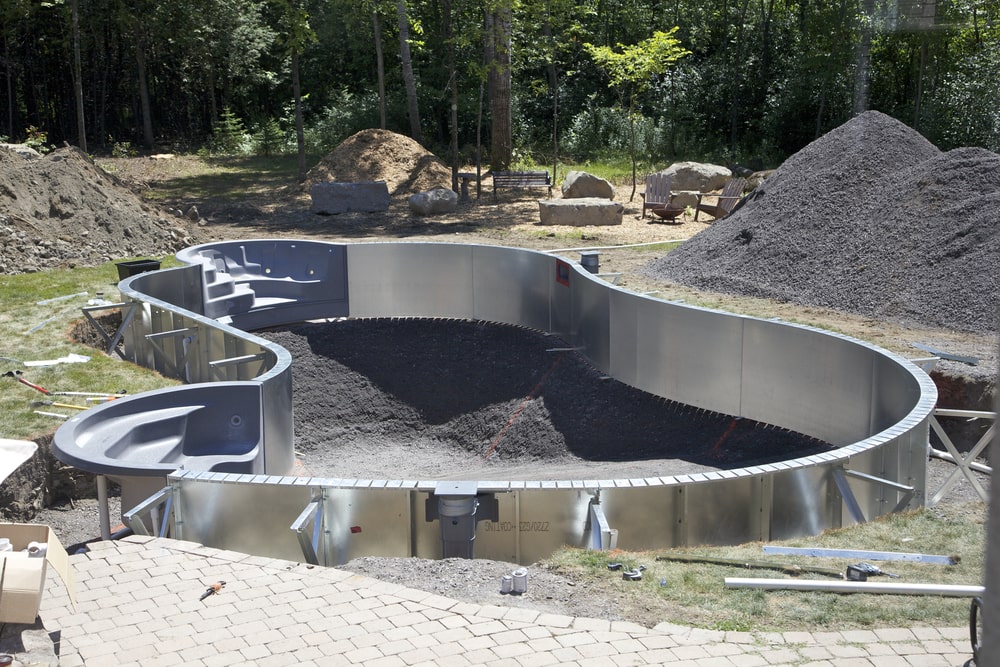
Steel pool walls are ideal for properties that rest on rocky soil or clay due to the material’s optimal durability. The steel used to make them is available in various thicknesses, so you can choose whichever thickness will be best for the job. Keep reading to learn more about the key pros and cons of steel pool walls.
Pros of Steel Walls
Here are the top four reasons to invest in steel pool walls.
- Durable: Steel pool walls are more durable than polymer pool walls. The material is element-resistant, meaning that it is less likely to be punctured or dented by elements underground—like rocks and tree roots. These pool walls are built to last and will maintain their structural integrity for years to come.
- Customizable: Steel pool walls are easily customizable due to their adjustable walls. The steel can be molded into any shape or size to meet your exact project specifications.
- Accessible: Thanks to its popularity among industries, steel is widely available on today’s market. The more available a material is, the cheaper it will be. As a result, steel is more affordable than its polymer counterpart.
- Temperature Resistant: Unlike polymer which forms cracks when soil expands and contracts, steel stands the test of time in cold climates. If you live in a northern state, steel pool walls are the go-to choice.
Cons of Steel Walls
While steel pool walls have notable pros, they also have a couple of cons.
- Limited Corrosion-Resistance: Steel is more prone to corrosion than polymer, making steel pool walls more susceptible to salt corrosion and rust formation than polymer pool walls.
- Heavy: Steel pool walls are also extremely heavy, making them more difficult to transport and install than polymer pool walls. This also means you’ll need a bigger installation team to get the job done safely.
Polymer Pool Walls
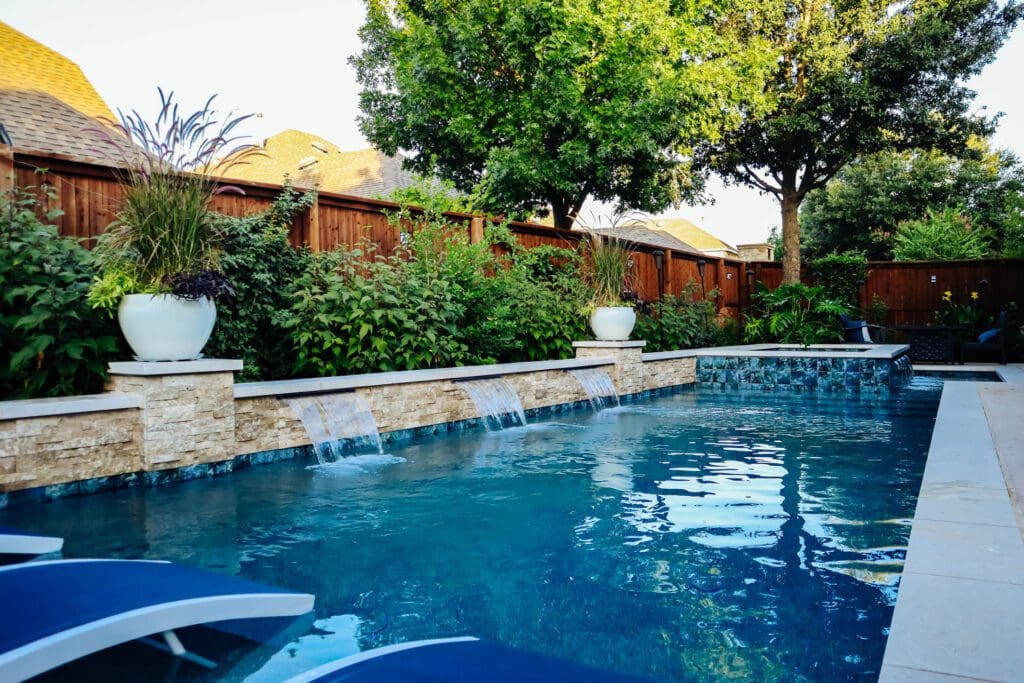
Polymer pool walls are ideal for marine environments due to the material’s corrosion resistance. Although not as durable as steel, polymer is still highly durable. It can withstand various elements and types of damage. Take a look below at the most notable pros and cons of polymer pool walls.
Pros of Polymer Walls
Pool builders opt for polymer pool walls for the following reasons.
- Lightweight: Polymer weighs significantly less than steel, making it easier to transport and install. You can get by with just a handful of workers installing the walls rather than requiring a larger team.
- Flexible: Polymer is also highly flexible, making it easy to bend and shape as needed.
- Corrosion-Resistant: Polymer pool walls are designed for corrosive environments and are 100% rust-resistant. We recommend them primarily for properties near an ocean or a lake or that have a saltwater pool on site.
- Space-Efficient: Polymer pool walls take up less space than steel pool walls because they require less overdig. As a result, they’re ideal for smaller outdoor spaces.
Cons of Polymer Walls
If we’re going to cover the advantages of polymer pool walls, we also must consider the drawbacks.
- Prone to Cracking: Polymer pool walls are less effective and reliable in colder climates. That’s because fluctuating outdoor temperatures cause the soil underground to expand and contract. Polymer can’t withstand this expansion and contraction and, quite literally, cracks under pressure. As a result, we recommend polymer walls for pools in warmer climates.
- More Expensive: Polymer pool walls are less budget-friendly than steel pool walls. With that said, the price discrepancy between steel and polymer has shrunk within recent years.
Steel Walls vs. Polymer Walls
Now that you know the main pros and cons of both steel and polymer pool walls, it’s time to decide which one is better for your pool build. Here are some key factors to consider during the decision-making process.
- Budget: Determine your budget for the project. Keep in mind that steel is cheaper than polymer. If you’re looking for a more budget-friendly option, steel is the clear winner.
- Terrain: What is the terrain like on your property? Remember that steel pool walls are better for rocky soil and clay, whereas polymer pool walls are better for corrosive environments.
- Climate: While steel is more equipped for colder climates, polymer is ideal for warmer climates.
- Weight: Steel is bulky and, therefore, heavy to move around. On the other hand, polymer is lightweight, making it easier to transport and install.
Become an Official UAG Member
Apply to become a UAG member to secure access to premium pool products from the industry’s top vendors. Whatever you need, we’ve got you covered. Click the button below to get started today.






